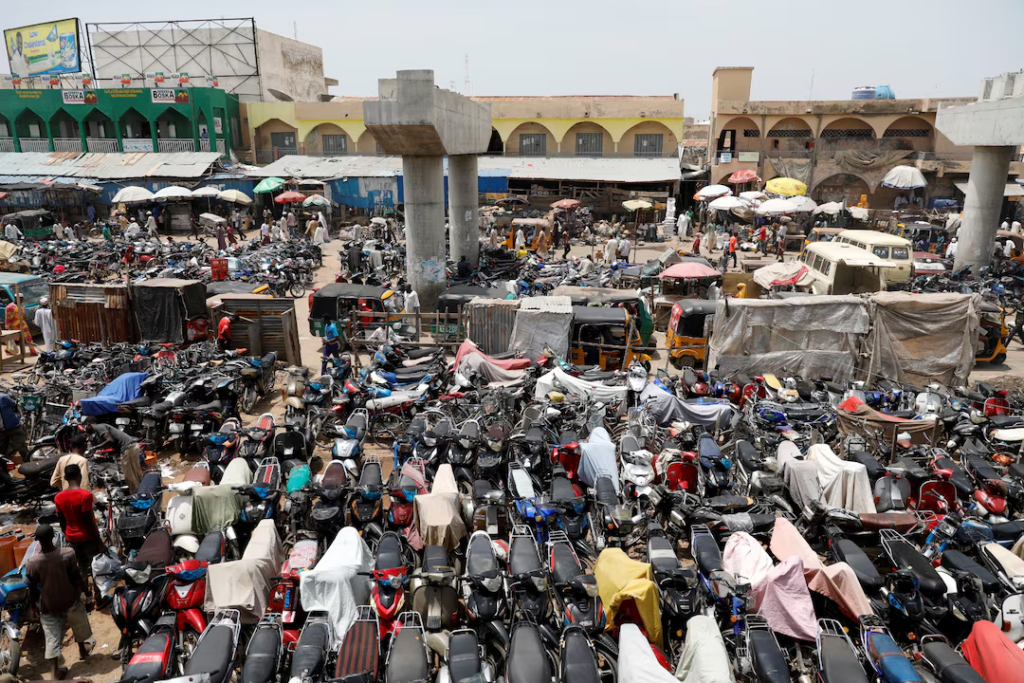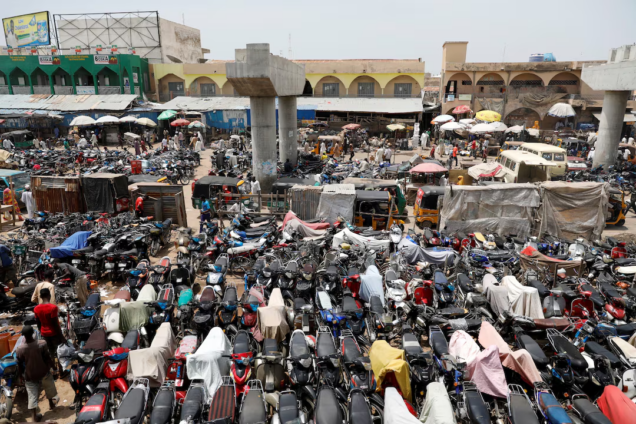The International Monetary Fund on Thursday maintained its growth forecast of 3.3% for Nigeria's economy for 2024, up from 2.9% last year, citing a pick up in services and trade sectors.
The IMF added that growth outlook was still challenging in Africa's most populous nation and top oil producer, with food price inflation 40% in March, raising food security concern.
"If Nigeria grows at 3.3% that is just above the population dynamics, which is a big challenge," IMF mission chief for Nigeria, Axel Schimmelpfenning, told journalists.
Since taking office about a year ago, President Bola Tinubu has embarked on sweeping reforms, including slashing costly petrol and electricity subsidies and devaluing the naira currency twice within a year to narrow the gap between the official and parallel market exchange rates.
The Fund forecast that fuel subsidies could cost up to 3% of GDP this year as the increases in pump prices have not kept up with their dollar cost, Schimmelpfennig said, adding that officials remain committed to phasing that out in another one or two years.

"The reforms are focused on how to raise that growth so that Nigerians can see real impacts on their living standards," Schimmelpfenning said.
Global ratings agencies have reviewed Nigeria's economic outlook upwards due to the impact of reforms, with Fitch the latest to revise Nigeria's outlook to positive from stable on May 3.
"We think a lot has happened. We also have to recognise that the problems built up over many years were quiet severe. We can't expect that everything is going to be resolved overnight," he added.
Schimmelpfenning said scaling up a cash transfer programme and boosting government revenues so that the country has more resources to provide services to its citizens is a key priority.
On monetary policy, the IMF welcomed the Central Bank of Nigeria's (CBN) recent interest rate hikes to curb galloping inflation, calling for a data-driven approach to further rate tightening.
The IMF urged the CBN to build up its foreign exchange reserves and recommended a transparent and balanced framework for forex interventions aimed solely at smoothing out excessive short-term volatility.
Latest Stories
-
4,155 cholera cases with 35 deaths recorded by December 23 – GHS
16 minutes -
Mothers celebrate arrival of Christmas Day babies at Ridge Hospital
3 hours -
Alleged National Security operative remanded over GH₵1m recruitment scam
3 hours -
Sametro Group of Companies donates to widows in Tarkwa Nsuaem Municipality to mark Christmas
3 hours -
Morocco’s Family Code revision proposals unveiled in Rabat
5 hours -
Saglemi fire: No documents lost, redevelopment project unaffected – Oppong Nkrumah
5 hours -
WAEC uncertain about meeting Dec. 29 deadline for WASSCE results
5 hours -
‘She Leads Project’ calls for more female representation in politics to address women’s issues
6 hours -
DJ Promise crowned Best Radio DJ at Dangme Music Awards 2024
6 hours -
Re-collation: Court sets Dec. 27 to hear NDC’s suit against EC
6 hours -
Let’s remain positive, optimistic, and with calmness, rebrand our party – Afenyo-Markin
6 hours -
L’aîné HR celebrates 30 years of excellence in HR management in Ghana
7 hours -
Corporate Wellness: Elegant Homes emphasizes impact of Annual Health and Family Fun Day
7 hours -
BoG issues bancassurance directives to stakeholders in financial sector; warns of sanctions
8 hours -
African Paralympic Committee President sends festive greetings to fraternity
8 hours

